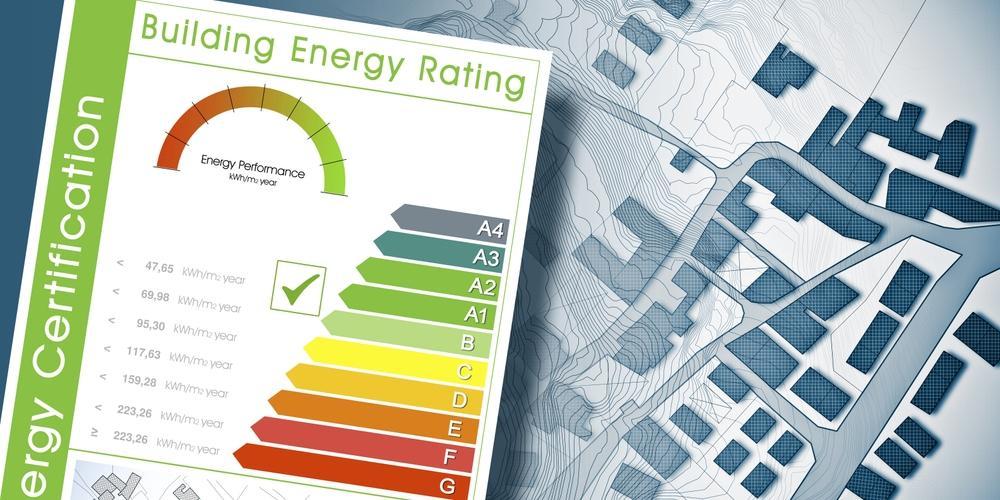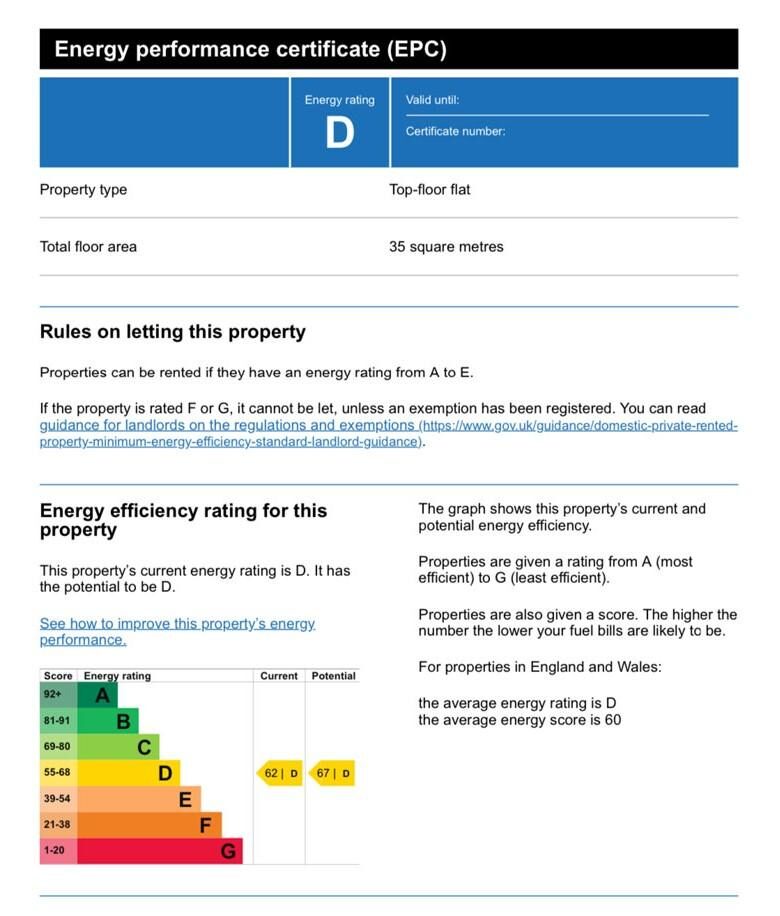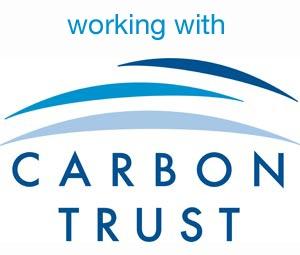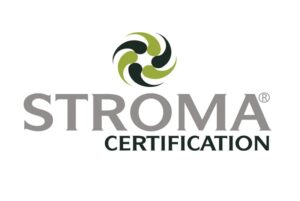
What is a Domestic EPC Certificate
An Energy Performance Certificate (EPC) is a document that shows the energy efficiency of a building. It is similar to the labels you see on appliances, but for buildings. It is rated from A (most efficient) to G (least efficient), with A-rated buildings being the most energy efficient and therefore the cheapest to run.
This will allow consumers to get grants to make improvements recommended in the EPC certificate.
This helps improve the energy efficiency of your property, along with giving home-buyers a home energy rating.
Energy Performance Certificates (EPC) were introduced in England and Wales on 1 August 2007 to cut carbon emissions and tackle climate change and are being introduced all across Europe.

We Cover The Whole Of London.
Covering the entirety of London, Complete EPC guarantees its customers the lowest and most reasonable prices in the market.
Complete EPC’s modern-day practices and innovative equipment are topped with our assessors experience, knowledge, and expertise. Full EPC evaluates how energy efficient your property is.
DEA is a licensed Domestic Energy Assessor – our experts have gone through specific training in the energy performance of buildings using Reduced Data Standard Assessment Procedure (RdSAP) which allows an EPC assessor to produce a domestic (residential) EPC.
Thus, we are a leader in providing our customers with the most precise and completely qualified yet economical energy performance certificates (EPC) for both your domestic and commercial properties.
The Department for Housing & Communities.
Before a building is put on the market the seller or landlord must commission an EPC for the building if no valid EPC exists already for it.
A person acting on behalf of the seller or landlord (for example, the estate or letting agent) must be satisfied that an EPC has been commissioned for the building before it is put on the market.
The seller or landlord or a person acting on their behalf must use all reasonable efforts to ensure the EPC is obtained within seven days. A further 21 days is allowed if after using all reasonable efforts the EPC cannot be obtained within seven days.
An estate or letting agent may on occasions provide a prospective buyer or tenant with a copy of the EPC. However, it remains the responsibility of the seller or landlord to make sure that a valid EPC has been purchased.
EPC on sale or rent.
When existing buildings are sold or rented out, the seller or landlord must make available an EPC at the earliest opportunity and no later than when a person:
- Requests information about the building, the time at which the seller or landlord first makes available any information in writing about the building.
- Makes a request to view the building, the time at which the person views the building. And must give, free of charge, a valid EPC to the person who ultimately becomes the buyer or tenant.
Transactions not considered a sale or rent.
EPCs are required in all instances of sales or rent, except those set out in page 6 (Situations where an EPC is not required). However, not all transactions are considered to be a sale or let. These will include:
- Lease renewals or extensions
- Compulsory purchase orders
- Sales of shares in a company, where buildings remain in company ownership
- Lease surrender
What does an EPC contain?
The Energy Performance Certificate (EPC) is a comprehensive document that offers valuable insights into the energy efficiency of a property.
It provides a detailed breakdown of a building’s energy consumption and carbon emissions, in addition to providing recommendations on how to improve its energy efficiency.
This certificate is an indispensable resource for property owners and real estate professionals alike, as it facilitates informed decision-making and assists in achieving long-term sustainability goals.
The EPC plays a vital role in ensuring that buildings are constructed and maintained to the highest standards of energy efficiency, ultimately contributing to a greener and more sustainable future.

Why Choose Complete EPC?
At Complete EPC, we provide excellent EPC services. Our skilled and accredited assessors will guarantee that your property meets all the Energy Performance Certificate (EPC) regulations and demands. We have a history of offering high-quality services and have assisted numerous property owners in reducing their carbon footprint and energy expenses.
Our prices are competitive, and we provide a flexible scheduling option to suit the requirements of our clients.
Selecting Complete EPC means choosing a professional organisation that places a high importance on customer satisfaction.
Schedule your EPC assessment today and start your journey to a more energy-efficient property.
Complete EPC assessors are adequately certified and hold a licensed Domestic Energy Assessor (DEA). This DEA allows an EPC assessor to generate a domestic EPC.
With Complete EPC, you are fully covered. We are proud of our exceptional professionalism and trusted service. Our competitive service is equally effective for estate agents, solicitors, landlords, and tenants.
What is a Domestic Energy Assessor?
A Domestic Energy Assessor (DEA) is a qualified professional who assesses the energy performance of domestic properties in the UK.
They conduct an energy survey of the property, examining the insulation, heating systems, ventilation, and lighting to provide an Energy Performance Certificate (EPC) rating. This rating informs potential buyers or tenants of the energy efficiency of the property and how it can be improved.
A Domestic Energy Assessor (DEA) is a person who has undergone training in the energy performance of buildings using the Reduced Data Standard Assessment Procedure (RdSAP) methodology. This enables the EPC assessor to produce a domestic EPC.
It is important to note that the DEA method is mainly used for domestic houses which a complete SAP is applied to build new homes.

The cost of an Energy Performance Certificate
The cost of an Energy Performance Certificate check varies depending on various factors such as the size and location of the property. Commercial properties, on the other hand, may have higher costs due to their larger size and complexity. It is important to note that the price of an EPC may also be influenced by additional services, such as floor plans or property assessments, that are requested alongside the certificate. Ultimately, the cost of an EPC is an investment towards improving energy efficiency and compliance with regulatory requirements.
How is a Domestic EPC Created?
Creating a Domestic Energy Performance Certificate (EPC) involves a series of steps to assess the energy efficiency of a residential property. Here is a brief outline of the process:
1. Booking an Assessment: The process begins when a homeowner or landlord arranges an appointment with a qualified Domestic Energy Assessor (DEA).
2. Site Visit and Inspection: On the day of the assessment, the DEA visits the property to conduct a comprehensive survey. This involves measuring the property and examining key features.
3. Data Collection: The assessor collects data regarding the property’s energy-related features and current energy usage. This includes,
• Examine the interior and exterior of your property.
• Assess the dimensions of the property as well as any heat loss between walls and ceilings.
• Inspect your boilers, room heaters and fireplaces.
• Examine any extensions and the type of building materials used.
• Inspect the construction of your property.
• Look at any un-separated conservatories.
• Inspect the insulation between walls and lofts.
• Examine the glazing and low energy lighting.
• The DEA must conduct a health and safety survey – interior and exterior to identify potential threats.
• The property will be inspected to establish the insulation.
• Glazing and low-energy lighting will also be taken into consideration.
4. Calculating the EPC Rating: Using the data collected, the DEA inputs the information into a software programme specifically designed to generate an EPC. This software calculates the property’s energy efficiency rating based on a standardised methodology.
5. Producing the EPC: The resulting EPC provides a rating from A (most efficient) to G (least efficient) and includes recommendations for improvements to increase energy efficiency.
6. Issuance: The completed EPC is lodged on a national database and a copy is issued to the property owner. The certificate is valid for ten years and is required for properties when sold or rented.
Hassle-free EPC Service
Our EPC service ensures a seamless and hassle-free process. Our team of certified assessors will conduct a thorough evaluation of your property, considering factors such as insulation, heating systems, and ventilation. The result is a detailed report that highlights the current energy performance of the property and provides recommendations on how to improve its efficiency.
Investing in an Energy Performance Certificate
Investing in an Energy Performance Certificate is a smart choice that benefits both you and the environment. It helps reduce energy consumption, lower utility bills, and contribute to the overall sustainability of our communities.
Minimum Energy Efficiency
Minimum energy efficiency is a crucial aspect of sustainable living and environmental responsibility. It refers to the minimum level of energy performance that a building or appliance must meet in order to comply with energy efficiency standards. By setting a minimum standard, known as the Minimum Energy Efficiency Standards (MEES), we can ensure that energy is used more efficiently, reduce greenhouse gas emissions, and lower utility bills. Meeting MEES is not only beneficial for the environment, but it also promotes a more sustainable and cost-effective approach to energy consumption.

What is an EPC renewal
An Energy Performance Certificate (EPC) renewal refers to the process of updating or obtaining a new EPC for a property once the existing certificate has expired. An EPC is valid for 10 years and provides information about a property’s energy efficiency, including recommendations for improving energy performance.
When renewing an EPC, a qualified energy assessor must re-evaluate the property to account for any changes or improvements that may affect its energy rating. This ensures that the certificate reflects the current state of the property, which is especially important if you plan to sell or rent the property.
The renewal process is similar to obtaining an initial EPC, involving an assessment of insulation, heating systems, windows, and other energy-related features. Keeping an up-to-date EPC helps property owners stay compliant with legal requirements and provides potential buyers or tenants with accurate energy efficiency information.
Frequently Asked Questions About EPC's
(Energy Performance Certificates)
- What is an EPC?
- An Energy Performance Certificate (EPC) provides information on the energy efficiency of a building or property. It includes a rating from A (most efficient) to G (least efficient) and offers recommendations for improving energy efficiency.
- Why do I need an EPC?
- EPCs are required whenever a property is built, sold, or rented. They provide potential buyers or tenants with an insight into the energy efficiency of the property, which can influence buying or renting decisions.
- How long is an EPC valid?
- An EPC is valid for 10 years. However, if you make significant changes to your property that might affect its energy efficiency, you might want to update your EPC.
- Who can carry out an EPC assessment?
- EPC assessments should be carried out by accredited Domestic Energy Assessors (DEA) or Non-Domestic Energy Assessors (NDEA) who are registered with a government-approved accreditation scheme.
- How can I improve my EPC rating?
- Improving your EPC rating can be achieved by implementing recommendations provided in the EPC, such as installing more efficient heating systems, adding insulation, or using energy-efficient lighting.
- How much does it cost to get an EPC?
- The cost of an EPC can vary depending on the size and location of your property, as well as the provider. It’s advisable to shop around and compare prices.
- What happens if I don’t have an EPC?
- If you are selling or renting your property without an EPC, you could face fines from local authorities. It’s essential to ensure that you have a valid EPC before marketing your property.
- Can I opt-out of having an EPC?
- In most cases, an EPC is a legal requirement, so opting out is not possible. However, there are certain exemptions, such as listed buildings or places of worship, which may not require an EPC.

The Release Of RdSAP 10 (15 June 2025)
The release of RdSAP 10 in June 2025 marks the first full-scale update to the methodology in four years. The documents currently provided by the BRE and has identified some of the big changes being introduced with RdSAP 10, that could impact the work of energy and retrofit assessors in 2024:
Assessors will be required to measure all windows- This represents a move away from the assumption of typical glazing areas for the age of property. The benefit of this that it will be more reflective of the property being assessed and thereby more accurate.
Additional options for roof rooms– Assessors will be required to take a couple of additional measurements in order to capture the different construction types of any common wall and gable walls.
New age band – Introduction of new age band for properties built from 2023 onwards to show improvement in u-values.
New region added– The Isle of Man has been added as a region alongside England, Wales, Scotland and Northern Ireland. It has previously never been possible to undertake RdSAP assessments in the Isle of Man before.
Assessors can account for PV diverters and battery storage– When present in the property, assessors will be able to account for PV diverters and battery storage.
Heat Pumps to be recommended more – The government’s low carbon solution of choice, Heat Pumps, will be appearing more often as a recommended improvement measure, under certain conditions e.g. the property has to be fairly well insulated.
Energy Cost:** This metric helps individuals understand the financial implications of a building’s energy efficiency and make informed decisions about potential improvements.
Carbon:** It provides an estimate of the carbon emissions generated by the energy used in the building.
Energy Use:** This metric offers insights into overall energy consumption and identifies areas for energy efficiency improvements.
Fabric Performance:** It assesses the thermal performance of a building’s envelope and emphasises the importance of well-insulated, comfortable, and energy-efficient spaces.
Heating System:** It provides information on the efficiency and environmental impact of a building’s heating source, encouraging the adoption of cleaner heating technologies.
Smart Readiness:** It assesses a building’s potential to integrate smart technologies that can optimise energy consumption and enable consumers to benefit from cheaper smart tariffs.

Domestic EPC Quote
Get Your Domestic EPC Quote:
(We Cover The Whole Of London)
"*" indicates required fields
What Makes Us Leaders?
To cut carbon emissions and tackle climate change, Energy Performance Certificates (EPC) are being introduced all across Europe.
An EPC helps improve the energy efficiency of your property, along with giving home-buyers a home energy rating.
This will allow consumers to get grants to make improvements recommended in the EPC certificate.
We Cover The Whole Of London.
Covering the entirety of London, Complete EPC guarantees its customers the lowest and most reasonable prices in the market.
Complete EPC’s modern-day practices and innovative equipment are topped with our assessors experience, knowledge, and expertise. Full EPC evaluates how energy efficient your property is.
DEA is a licensed Domestic Energy Assessor – our experts have gone through specific training in the energy performance of buildings using Reduced Data Standard Assessment Procedure (RdSAP) which allows an EPC assessor to produce a domestic (residential) EPC.
Thus, we are a leader in providing our customers with the most precise and completely qualified yet economical energy performance certificates (EPC) for both your domestic and commercial properties.

The Department for Housing & Communities.
Before a building is put on the market the seller or landlord must commission an EPC for the building if no valid EPC exists already for it. A person acting on behalf of the seller or landlord (for example, the estate or letting agent) must be satisfied that an EPC has been commissioned for the building before it is put on the market.

The seller or landlord or a person acting on their behalf must use all reasonable efforts to ensure the EPC is obtained within seven days. A further 21 days is allowed if after using all reasonable efforts the EPC cannot be obtained within seven days. An estate or letting agent may on occasions provide a prospective buyer or tenant with a copy of the EPC. However, it remains the responsibility of the seller or landlord to make sure that a valid EPC has been purchased.

EPC on sale or rent.
When existing buildings are sold or rented out, the seller or landlord must make available an EPC at the earliest opportunity and no later than when a person:
- Requests information about the building, the time at which the seller or landlord first makes available any information in writing about the building.
- Makes a request to view the building, the time at which the person views the building. And must give, free of charge, a valid EPC to the person who ultimately becomes the buyer or tenant.
Transactions not considered a sale or rent.
EPCs are required in all instances of sales or rent, except those set out in page 6 (Situations where an EPC is not required). However, not all transactions are considered to be a sale or let. These will include:
- Lease renewals or extensions
- Compulsory purchase orders
- Sales of shares in a company, where buildings remain in company ownership
- Lease surrender
What does an EPC contain?
The Energy Performance Certificate (EPC) is a comprehensive document that offers valuable insights into the energy efficiency of a property.
It provides a detailed breakdown of a building’s energy consumption and carbon emissions, in addition to providing recommendations on how to improve its energy efficiency.
This certificate is an indispensable resource for property owners and real estate professionals alike, as it facilitates informed decision-making and assists in achieving long-term sustainability goals.
The EPC plays a vital role in ensuring that buildings are constructed and maintained to the highest standards of energy efficiency, ultimately contributing to a greener and more sustainable future.


Why Choose Complete EPC?
At Complete EPC, we provide excellent EPC services. Our skilled and accredited assessors will guarantee that your property meets all the Energy Performance Certificate (EPC) regulations and demands. We have a history of offering high-quality services and have assisted numerous property owners in reducing their carbon footprint and energy expenses.
Our prices are competitive, and we provide a flexible scheduling option to suit the requirements of our clients.
Selecting Complete EPC means choosing a professional organisation that places a high importance on customer satisfaction.
Schedule your EPC assessment today and start your journey to a more energy-efficient property.
Complete EPC assessors are adequately certified and hold a licensed Domestic Energy Assessor (DEA). This DEA allows an EPC assessor to generate a domestic EPC.
With Complete EPC, you are fully covered. We are proud of our exceptional professionalism and trusted service. Our competitive service is equally effective for estate agents, solicitors, landlords, and tenants.

What is a Domestic Energy Assessor?
A Domestic Energy Assessor (DEA) is a qualified professional who assesses the energy performance of domestic properties in the UK.
They conduct an energy survey of the property, examining the insulation, heating systems, ventilation, and lighting to provide an Energy Performance Certificate (EPC) rating. This rating informs potential buyers or tenants of the energy efficiency of the property and how it can be improved.
A Domestic Energy Assessor (DEA) is a person who has undergone training in the energy performance of buildings using the Reduced Data Standard Assessment Procedure (RdSAP) methodology. This enables the EPC assessor to produce a domestic EPC.
It is important to note that the DEA method is mainly used for domestic houses which a complete SAP is applied to build new homes.

How is a Domestic EPC Created?
One of our DEAs will need to visit your property and;
- Examine the interior and exterior of your property.
- Assess the dimensions of the property as well as any heat loss between walls and ceilings.
- Inspect your boilers, room heaters and fireplaces.
- Examine any extensions and the type of building materials used.
- Inspect the construction of your property.
- Look at any un-separated conservatories.
- Inspect the insulation between walls and lofts.
- Examine the glazing and low energy lighting.
- The DEA must conduct a health and safety survey – interior and exterior to identify potential threats.
- The property will be inspected to establish the insulation.
- Glazing and low-energy lighting will also be taken into consideration.
The DEA will record all this data on a property datasheet or a PDA – this helps download it into a specific computer program that analyses data and produces an EPC.
At Complete EPC, we employ our assessors, who hold all the required qualifications, experience, and accreditation, including Insurance and Disclosure checks, to enable them to produce Domestic EPC’s.
The release of RdSAP 10 in early 2024
What changes have been confirmed in RdSAP 10?
The release of RdSAP 10 in early 2024 marks the first full-scale update to the methodology in four years. The documents currently provided by the BRE and has identified some of the big changes being introduced with RdSAP 10, that could impact the work of energy and retrofit assessors in 2024:
Assessors will be required to measure all windows- This represents a move away from the assumption of typical glazing areas for the age of property. The benefit of this that it will be more reflective of the property being assessed and thereby more accurate.
Additional options for roof rooms– Assessors will be required to take a couple of additional measurements in order to capture the different construction types of any common wall and gable walls.
New age band – Introduction of new age band for properties built from 2023 onwards to show improvement in u-values.
New region added– The Isle of Man has been added as a region alongside England, Wales, Scotland and Northern Ireland. It has previously never been possible to undertake RdSAP assessments in the Isle of Man before.
Assessors can account for PV diverters and battery storage– When present in the property, assessors will be able to account for PV diverters and battery storage.
Heat Pumps to be recommended more – The government’s low carbon solution of choice, Heat Pumps, will be appearing more often as a recommended improvement measure, under certain conditions e.g. the property has to be fairly well insulated.
Get An Instant Online Quote For Your Domestic Property
Contact Info
Recent Posts
Accreditation


























